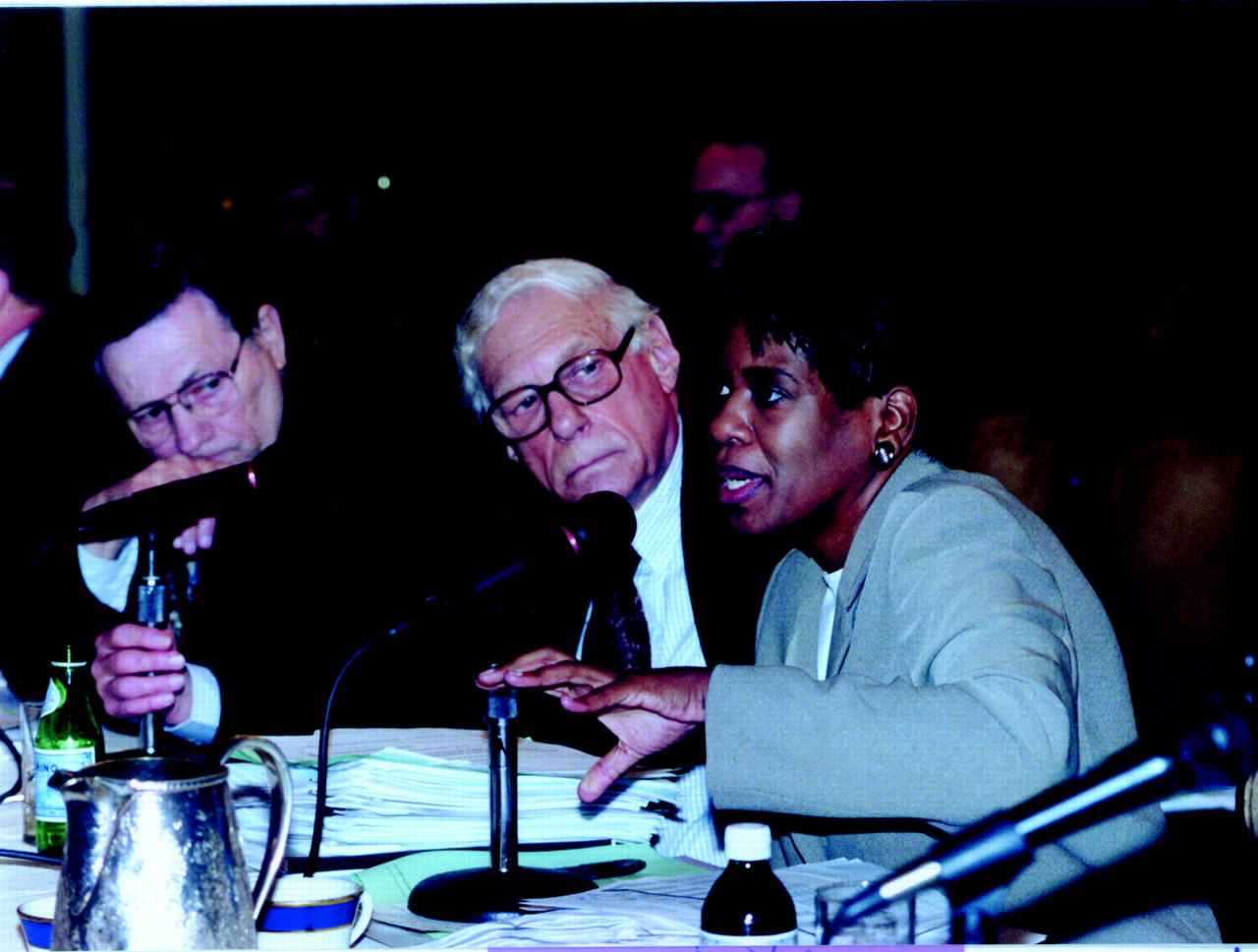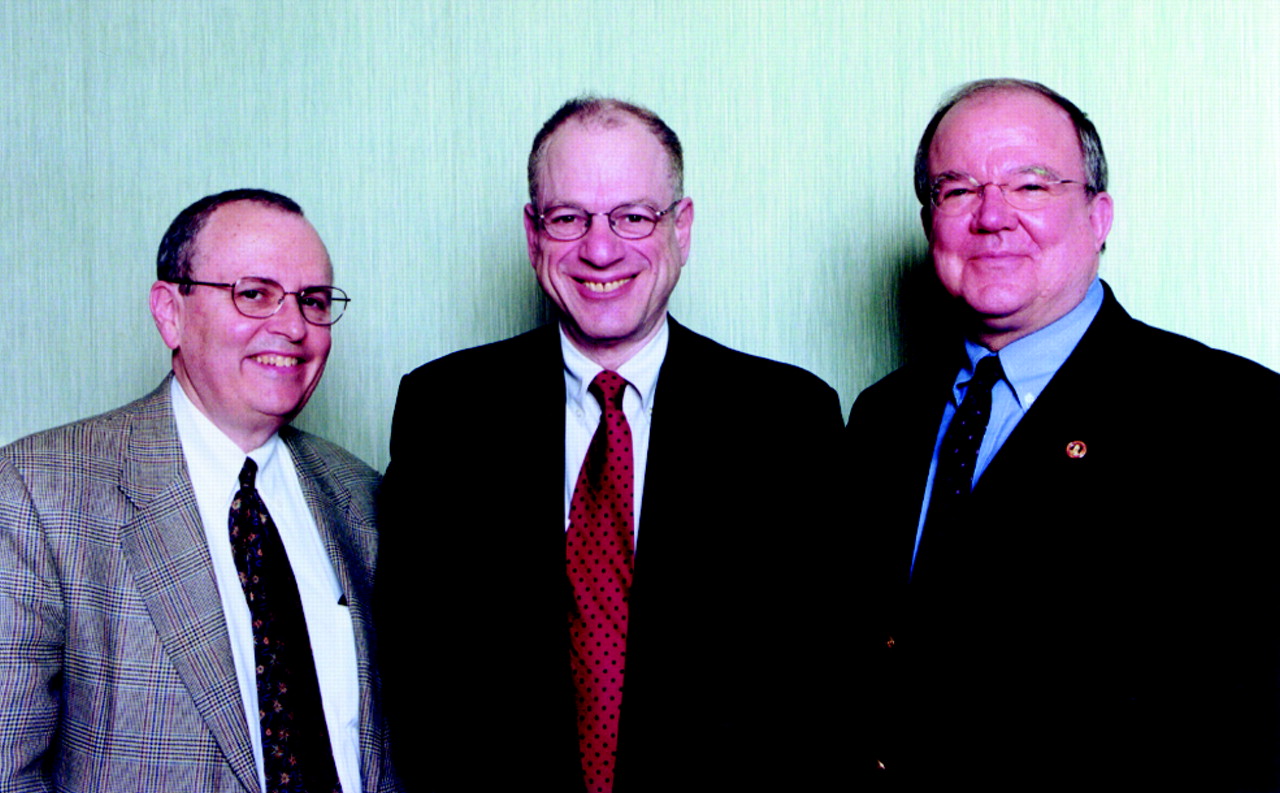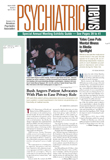A vote by the APA Board of Trustees at its March meeting will result in a more efficient and less costly structure for the dozens of councils, commissions, committees, and task forces that help APA set its agenda and achieve its goals.
A task force appointed in January worked quickly to devise a new component structure that better aligns committees and councils to meet APA’s strategic goals. (The goals are advocating for patients; advocating for the profession; supporting education, training, and career development; defining and supporting professional values; and enhancing the scientific base of psychiatric care.) The process was also budget-driven, noted APA Vice President Marcia Goin, M.D., who cochaired the restructuring task force along with Jon Gudeman, M.D.
The structure the Trustees approved at last month’s meeting reduces the number of components from 106 to 88, and the number of positions available on these components from 654 (plus 232 corresponding members and consultants) to 532 (plus 124 corresponding members and consultants). The task force estimates that these reforms will reduce the cost of the component structure by about $700,000, or 50 percent, Goin pointed out. Most of that cost goes to pay travel and meeting expenses for the fall component meetings held every September at a Washington, D.C., hotel.
The components also meet in conjunction with the APA annual meeting.
Residents who are assigned to committees and other components because they are in fellowships sponsored by pharmaceutical companies will continue to participate as they have in the past, with their fellowships paying for their expenses.
As part of the process for developing their restructuring proposal, task force members talked with the chairs of all of the councils and major components, as well as with the staff liaisons who help these groups carry out their work.
The new component lineup will take effect in May at the close of the annual meeting, and APA President-elect Paul Appelbaum, M.D., said that he will make his component appointments based on the new structure.
The Board acknowledged before taking a vote that the structure was still “a work in progress” that will involve additional tinkering and adjusting.
The proposal the Board adopted has 13 councils overseeing committees, corresponding committees, and task forces. As part of the effort to streamline the structure, there will no longer be commissions and joint commissions; they will all become committees under one of the councils. Several current committees will be converted to corresponding committees, which means they will not have yearly face-to-face meetings at APA’s expense, but will be given a budget for conference calls and mailings. Every three years the council to which a corresponding committee reports will reassess the need to continue its corresponding committees.
Several current committees and task forces will be sunsetted. The Board voted, however, to adopt an amendment introduced by Area 3 Trustee Roger Peele, M.D., that requires the component restructuring task force to consult with the chairs of councils before a committee under that council’s jurisdiction can be sunsetted. If the council chair disagrees with the suggested termination, that committee will remain in existence as a corresponding committee under the most appropriate new council.
In other actions the Board of Trustees voted to
• relocate APA’s national headquarters from downtown Washington, D.C., to a building directly across the Potomac River in the Rosslyn section of Arlington, Va. The new site is about two miles from the current headquarters. The Trustees had approved the move last October, but reversed that decision earlier this year, deciding instead to fit the staff into just over half the current space it now occupies. Several Trustees had second thoughts, however, once they had more data about cost, working conditions, and lack of future flexibility of the space. A new vote was held last month, and the Board voted 12 to 6 to relocate. APA will occupy about 60 percent of its current square footage. Over the 15 years of the lease, the move is expected to save APA approximately $700,000 annually, or $10.5 million, compared with renting the reduced amount of space in the headquarters at 1400 K Street, said Chief Financial Officer Therese Swetnam.
• appropriate $26,000 from the Board’s Contingency Fund to support the search process for a new APA medical director. Search Committee Chair Herbert Pardes, M.D., reported to the Board that his committee has set May 1 as the deadline for receipt of curricula vitae and hopes to be able to bring to the June meeting of the Board the names of the three or four finalists the committee identifies to replace Steven Mirin, M.D., who will be stepping down at the end of 2002.
• make optional the racial/ethnic identification form that anyone proposing an annual meeting presentation must submit to the Scientific Program Committee. Instituted as a means of helping to ensure that a diverse group of presenters participates in the program, the form has been mandatory since implemented in 1999.
• empower district branches to implement a dues amnesty for former members, with APA then allowing amnesty only for lapsed members within district branches that have instituted an amnesty program. Reinstated members will have to pay dues in advance for the year in which they are being reinstated.
• enact the amendment to APA’s Bylaws that was on the 2002 election ballot but failed to pass because not enough voting members cast ballots in the election. For an amendment to pass, 33 1/3 percent of APA’s eligible voting members must participate in the election. Only 31 percent did so in the 2002 election. Of those who voted, however, 92 percent voted in favor of the amendment.
The amendment requires Assembly approval before a Bylaws change approved by the Board of Trustees can be enacted. A two-thirds vote by strength of the Assembly is required for a Board-backed amendment to be added to the Bylaws. If an amendment vote cannot wait until the next Assembly meeting (the Assembly meets twice a year), the Assembly Executive Committee can vote on the amendment, and if it receives a favorable vote, it will still be subject to a vote by the full Assembly at its next meeting.
With overwhelming backing by the 31 percent of members who chose to vote on the amendment, a majority of the Trustees agreed that they were carrying out the members’ wishes, even though the overall vote total failed to meet the required threshold for enactment.
• approve a new newsletter focusing on the intersection of business and mental health. The newsletter will be funded by Cyberonics Inc., maker of a vagus-nerve-stimulation device, with APA having complete editorial control and with advertising content subject to APA’s “Principles and Guidelines of Advertising Acceptance.”
The goal of the newsletter is “to provide credible, timely, and useful information to those in the business community who make the purchasing decisions regarding mental health services.” Most of these decision makers have inadequate information on the value of providing employees greater access to mental health care, particularly how such access can reduce absenteeism and boost productivity. It will describe research, treatment advances, and legal decisions involving mental health care.
• approve a request from the Commission on Public Policy, Litigation, and Advocacy to contribute funds to the New York State Psychiatric Association to advocate against legislative efforts to expand the scope of practice of mental health professionals; to the Georgia Psychiatric Physicians Association for a grass-roots campaign it waged in an attempt to defeat psychologist-prescribing legislation in New Mexico; and to the California Psychiatric Association to help in its preparation of a legal brief regarding nonphysicians’ scope of practice.
• approve two resource documents offering psychiatrists guidance on recent regulations involving psychotherapy notes and patient privacy. Development and approval of the documents, “Documentation of Psychotherapy by Psychiatrists” and “Psychotherapy Notes Provision of the HIPAA Privacy Rule,” are timed to prepare psychiatrists to comply with the April 2003 implementation of the medical privacy rules in the federal Health Insurance Portability and Accountability Act (HIPAA).
The former document, which was developed by the Commission on Psychotherapy by Psychiatrists, deals, for example, with resolving conflicting principles regarding completeness of medical records and the circumspection that must be exercised in light of the vulnerability of electronic medical records. It also suggests a 12-part format by which psychiatrists can document psychotherapy sessions. The latter resource document, which was developed by the Council on Psychiatry and Law, explains the specifics of the additional privacy protections HIPAA provides for psychotherapy notes, compared with the rest of a person’s medical record. It describes what can be included in those protected notes and exceptions to those additional protections. The resource documents will eventually be published on APA’s Web site and in other APA publications.
• back a change in benefits for international members that will give them free access to the online editions of the American Journal of Psychiatry and Psychiatric Services. They will also be able to have access to the American Psychiatric Online Library at the same annual rate that other members pay. (Access to Psychiatric News is free already.)
• endorse a public television series on depression developed by New York station WLIW and an accompanying national awareness campaign on depression. Council on Research Chair John Greden, M.D., said that APA’s endorsement “will strengthen the effort to convince PBS to do the series on a national basis.”
• ask the Rural Psychiatrists’ Caucus to make recommendations to the Board and Assembly on how the psychiatrically ill in rural areas can best be served. The caucus is to have these recommendations by the close of the 2002 Institute on Psychiatric Services in October.
• endorse the AMA’s International Conference on Physician Health, which will be held in October. ▪


